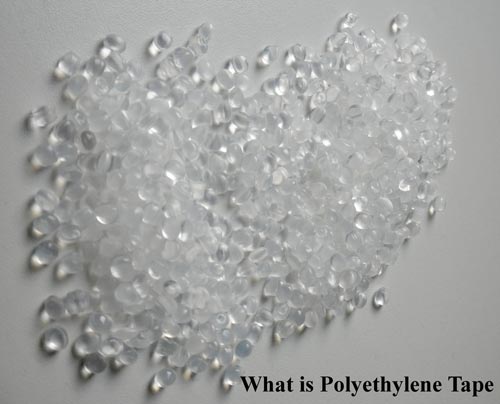What is Polyethylene Tape
1.1 Definition and Overview
Polyethylene tape, also known as PE tape, is a type of adhesive tape made from polyethylene material. Polyethylene is a thermoplastic polymer that exhibits excellent flexibility, durability, and resistance to moisture, chemicals, and UV radiation. It is commonly used for various applications due to its exceptional properties.
Polyethylene tape is typically available in the form of rolls with adhesive backing on one side. The tape can be easily cut and applied to different surfaces, providing a secure bond and protection against various environmental factors. It is widely utilized in industries such as construction, manufacturing, transportation, electrical, and packaging.
This section will delve into the definition of polyethylene tape, its composition, and its structural characteristics. It will also provide an overview of the different types and variations available in the market. Understanding the fundamental aspects of polyethylene tape is crucial for comprehending its applications and benefits.

1.2 Applications of Polyethylene Tape
Polyethylene tape finds extensive applications across a wide range of industries. Its versatility and adaptability make it suitable for diverse purposes. Some of the prominent applications of polyethylene tape include:
1.2.1 Pipeline Corrosion Protection: Polyethylene tape is widely used for corrosion protection of pipelines in industries such as oil and gas, water supply, and chemical processing. It forms a protective barrier that prevents corrosion caused by soil, moisture, and chemical exposure.
1.2.2 Electrical Insulation and Wire Harnessing: Due to its excellent electrical insulating properties, polyethylene tape is employed for insulation of electrical wires, cables, and components. It helps in preventing short circuits, electrical leakage, and damage due to moisture or environmental factors.
1.2.3 Packaging and Wrapping: Polyethylene tape serves as an efficient packaging material, providing a secure seal for boxes, cartons, and packages. It ensures protection against dust, moisture, and tampering during storage and transportation.
1.2.4 Surface Protection and Masking: In industries such as manufacturing, automotive, and construction, polyethylene tape is used for surface protection and masking during painting, coating, or surface treatment processes. It safeguards the underlying surface from damage, scratches, or unwanted adhesion.
1.2.5 Automotive and Aerospace Industries: Polyethylene tape finds application in automotive manufacturing for bonding, sealing, and protection of various components. In the aerospace industry, it is utilized for surface protection, wire harnessing, and insulation in aircraft assembly and maintenance.
1.2.6 Other Diverse Applications: Polyethylene tape is also employed in various other applications such as sports equipment manufacturing, medical devices assembly, bookbinding, stage and exhibition setups, and temporary repairs.
This section will explore each application in detail, highlighting the specific uses, benefits, and relevant industry examples.
1.3 Importance and Benefits of Polyethylene Tape
Polyethylene tape offers numerous advantages and plays a vital role in different industries. Some of the key importance and benefits of using polyethylene tape include:
1.3.1 Corrosion Prevention and Protection: Polyethylene tape provides an effective solution for corrosion prevention in pipelines, protecting them from corrosive substances, moisture, and soil. It helps in extending the lifespan of infrastructure and reducing maintenance costs.
1.3.2 Durability and Longevity: Polyethylene tape is known for its durability and longevity. It withstands harsh environmental conditions, temperature variations, and physical stress, ensuring long-lasting performance and reliability.
1.3.3 Cost-Effectiveness: Using polyethylene tape for corrosion protection, surface protection, or insulation proves cost-effective compared to traditional methods. It eliminates the need for expensive repairs, replacements, or maintenance due to damage or corrosion.
1.3.4 Versatility and Adaptability: Polyethylene tape is available in different thicknesses, widths, and adhesive strengths, making it suitable for a wide range of applications. It can conform to irregular surfaces and withstand varying environmental conditions.
1.3.5 Ease of Application and Maintenance: Applying polyethylene tape is a straightforward process, requiring minimal tools or expertise. It can be easily cut, shaped, and applied to the desired surface. Additionally, maintenance is hassle-free, with minimal requirements for upkeep.
1.3.6 Environmental Considerations: Polyethylene tape is environmentally friendly as it is recyclable and does not release harmful chemicals during its lifecycle. It contributes to sustainable practices and meets regulatory requirements.
1.3.7 Impact on Operational Efficiency: The use of polyethylene tape improves operational efficiency in industries by reducing downtime, improving safety, and enhancing productivity. It helps in streamlining processes, protecting valuable assets, and ensuring reliable performance.
This section will delve into each importance and benefit in more detail, providing examples and case studies to illustrate the practical advantages of polyethylene tape in various applications and industries.